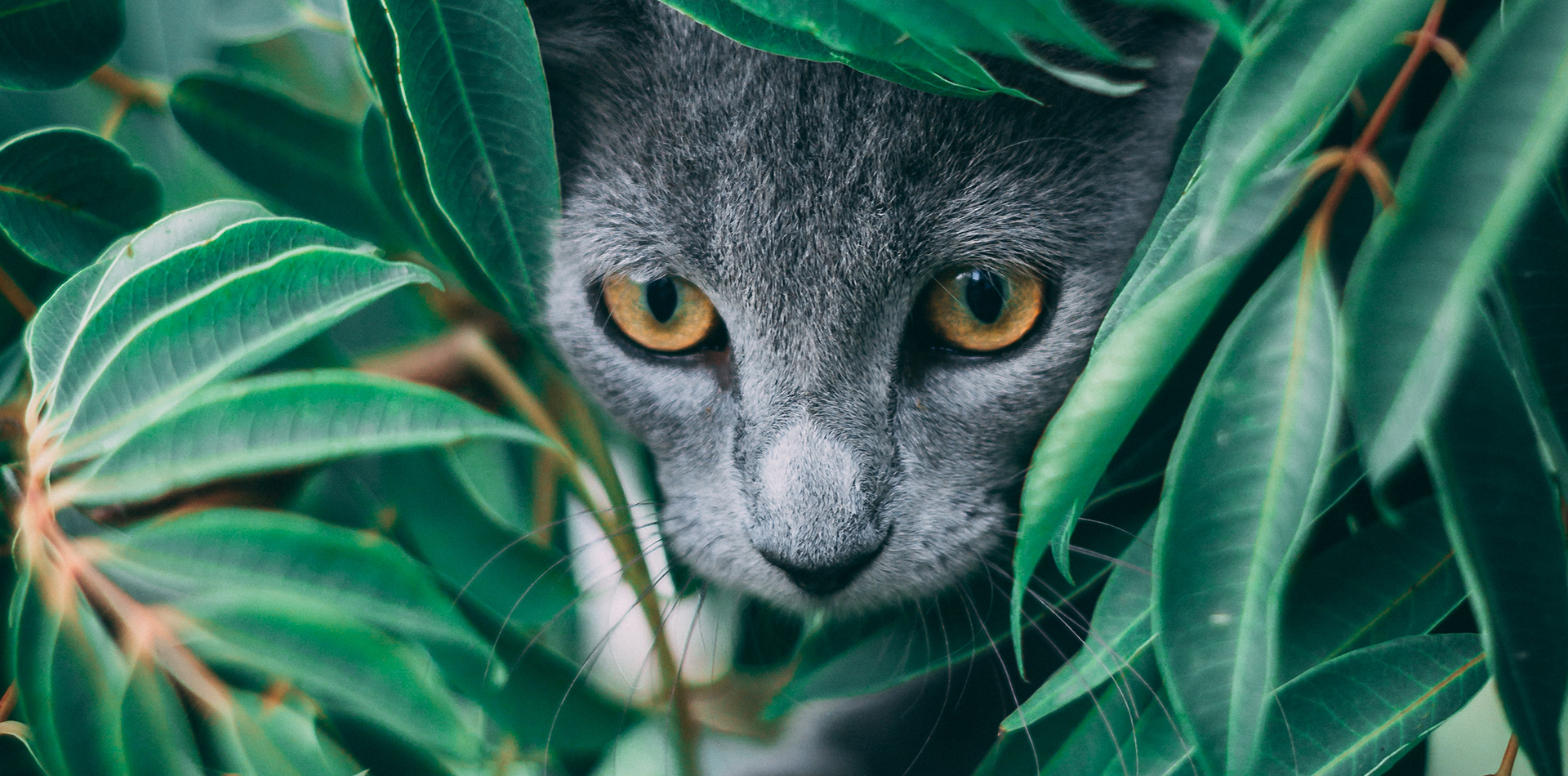A great way to spend quality time with your pet is by respecting their natural instincts, which will help to strengthen your bond. Cats are playful creatures, and there’s nothing they enjoy more than the thrill of hunting. Obviously your cat isn’t going to hunt you—but they will definitely participate in a game of hide and seek to mimic the natural behaviour of stealthily pursuing prey.
Playing hide and seek can be done in many ways. You can dash away and hide behind a door to have your pet seek you out, or put a toy under a blanket and move it around quickly to get your cat to pounce. For a calmer game of hide and seek, you can even hide toys stuffed with treats for them to sniff out and discover on their own.
Most cats will hide behind beds, doors and couches, loving the excitement of jumping out or running away playfully when they are spotted. However, there are a few things to watch out for during playtime that indicate it may not be all fun and games.
Here are the top three behaviours to keep an eye on:
Body language. Watch your kitty’s body language closely when playing hide and seek. If you notice a quick tail movement, ears held tight to the head or hair that stands on end, your cat is likely stressed.
Staying hidden. One of the clearest ways your furry friend will tell you they aren’t feeling well is by hiding away for longer periods than normal. Cats tend to sneak off when they're in pain, so if you witness your pet suddenly withdraw from games and affection, it may be a cause for concern.
Messy litter box. If your cat only comes out of hiding to answer nature’s call, and does so in a not-so-neat manner, something in their environment might be causing them stress. Oftentimes it's another cat in the home, or a person who is interacting too enthusiastically with your furry friend. Beyond that, it could be a physical issue or anxiety problem. Either way, it’s best to reach out to your vet when there are clear signs of distress.
Playing games with your feline friend is great for you both, but it’s also important to pay close attention to their needs. Our cats love the chase—just make sure you know when they’re telling you that enough is enough.

